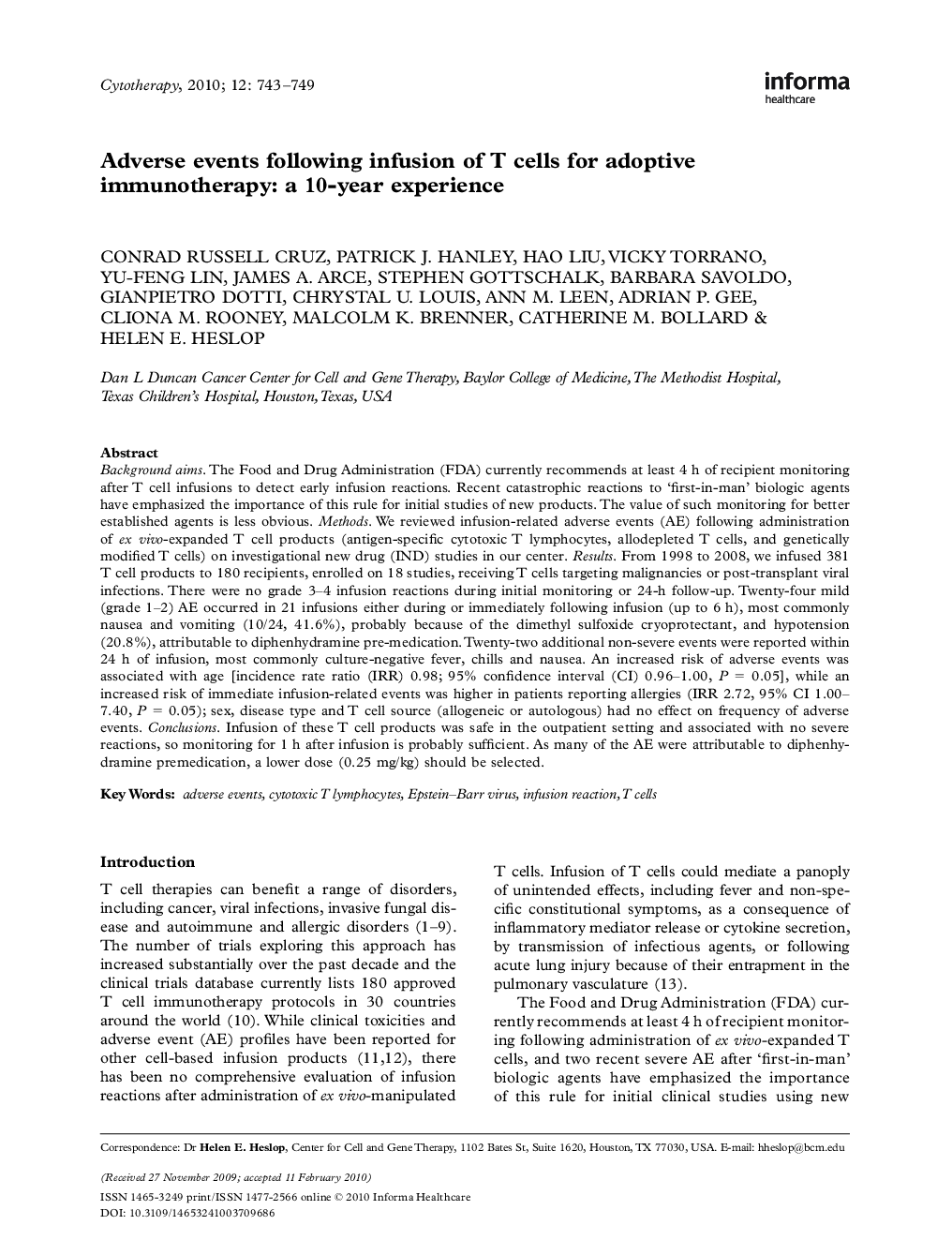| کد مقاله | کد نشریه | سال انتشار | مقاله انگلیسی | نسخه تمام متن |
|---|---|---|---|---|
| 2172213 | 1093528 | 2010 | 7 صفحه PDF | دانلود رایگان |

Background aimsThe Food and Drug Administration (FDA) currently recommends at least 4 h of recipient monitoring after T cell infusions to detect early infusion reactions. Recent catastrophic reactions to ‘first-in-man’ biologic agents have emphasized the importance of this rule for initial studies of new products. The value of such monitoring for better established agents is less obvious.MethodsWe reviewed infusion-related adverse events (AE) following administration of ex vivo-expanded T cell products (antigen-specific cytotoxic T lymphocytes, allodepleted T cells, and genetically modified T cells) on investigational new drug (IND) studies in our center.ResultsFrom 1998 to 2008, we infused 381 T cell products to 180 recipients, enrolled on 18 studies, receiving T cells targeting malignancies or post-transplant viral infections. There were no grade 3–4 infusion reactions during initial monitoring or 24-h follow-up. Twenty-four mild (grade 1–2) AE occurred in 21 infusions either during or immediately following infusion (up to 6 h), most commonly nausea and vomiting (10/24, 41.6%), probably because of the dimethyl sulfoxide cryoprotectant, and hypotension (20.8%), attributable to diphenhydramine pre-medication. Twenty-two additional non-severe events were reported within 24 h of infusion, most commonly culture-negative fever, chills and nausea. An increased risk of adverse events was associated with age [incidence rate ratio (IRR) 0.98; 95% confidence interval (CI) 0.96–1.00, P = 0.05], while an increased risk of immediate infusion-related events was higher in patients reporting allergies (IRR 2.72, 95% CI 1.00–7.40, P = 0.05); sex, disease type and T cell source (allogeneic or autologous) had no effect on frequency of adverse events.ConclusionsInfusion of these T cell products was safe in the outpatient setting and associated with no severe reactions, so monitoring for 1 h after infusion is probably sufficient. As many of the AE were attributable to diphenhydramine premedication, a lower dose (0.25 mg/kg) should be selected.
Journal: Cytotherapy - Volume 12, Issue 6, October 2010, Pages 743–749